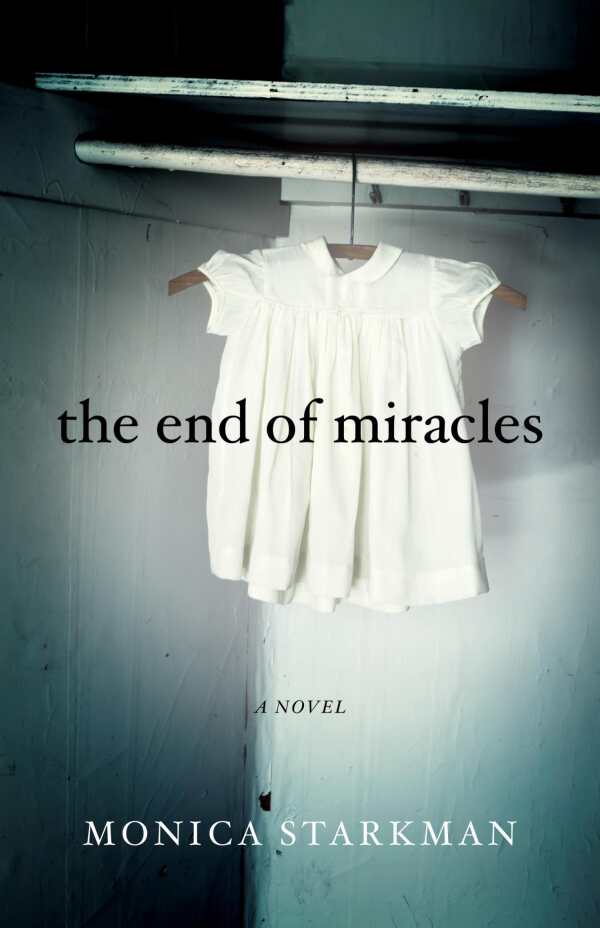The End of Miracles
Best of all is Starkman’s portrait of Margo—a flawed yet admirably strong victim of circumstance and biology who refuses to be a victim anymore.
Monica Starkman’s novel The End of Miracles focuses on one woman’s longing to conceive—a primal, nurturing desire that somehow goes terribly wrong.
For Margo Kerber, the novel’s stoic and sensitive protagonist, the path to motherhood has been troubled from the start. Consultations with a fertility specialist leave Margo and her husband feeling like lab animals—studied, poked, and prodded—their sexual relations now “controlled by doctor, date, and a woman’s monthly rhythm.”
Margo endures these procedures because she is a hospital administrative professional and is well aware of how modern medicine can create miracles. Her doctor praises her for her diligence and her “painstakingly kept” cycle charts. Yet when the treatments continue to fail, Margo is advised to accept the fact that she may never naturally bear a child and to consider other options.
Margo’s paradoxical nature is integral to The End of Miracles. She alternates between calm efficiency and intense emotion, along with feelings of inadequacy that are made worse by the constant focus on her “barren” womb. She wakes from dreams of a tide of tiny infants rushing from her mouth, haunted by babies even in her sleep. Margo’s need for composure is soon tested, however, by an unexpectedly joyful pregnancy followed by a miscarriage.
Starkman’s measured plot builds effectively to this catastrophic event. Clinical details underscore the drama of Margo’s late-term miscarriage—her premature labor is long and painful, with just enough possibility for the baby’s survival to make the ultimate loss all the more heartbreaking. Afterward, when Margo’s body produces false pregnancy symptoms and cruelly tricks her again, it is clear that she’s been driven to a breaking point.
Margo’s collapse, unraveling, and gradual recovery bring The End of Miracles to a conclusion of forgiveness and hope. A psychiatrist, the author has a decided slant toward the power of psychotherapy, but her professional experience also adds technical depth and emotional breadth to the novel. And best of all is Starkman’s portrait of Margo—a flawed yet admirably strong victim of circumstance and biology who refuses to be a victim anymore.
Reviewed by
Meg Nola
Disclosure: This article is not an endorsement, but a review. The publisher of this book provided free copies of the book to have their book reviewed by a professional reviewer. No fee was paid by the publisher for this review. Foreword Reviews only recommends books that we love. Foreword Magazine, Inc. is disclosing this in accordance with the Federal Trade Commission’s 16 CFR, Part 255.

